Reading and listening tips
BOOKS & PODCASTS
Reading and listening tips from leaders and frontier explorers
What are sustainable market transformations? And how did entrepreneurs succeed in greening their operations? In the interview series Frontrunners & Frontier Explorers experts gave their reading and listening tips. Which podcasts and books about a sustainable future are not to be missed? We've listed the tips for you here.
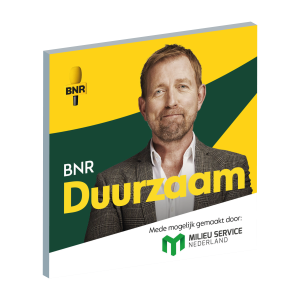
Podcast: BNR Duurzaam 'Sustainable' - Harm Edens
The Green Road to 2030. Harm Edens explores how we can
best and fastest to meet the goals of the Paris climate agreement. Harm Edens goes in search of innovations that can really make a difference and large companies with concrete green ambitions. In 20-minute episodes, Harm and his guests explore a range of sustainability issues. They discuss topics such as green technologies, the circular economy, climate change and renewable energy sources and other topics that affect our planet and society.
Tipped by Wendeline Besier
"I often say internally that if there is one sector in the Netherlands that can show that we can act more sustainably, it is the construction and engineering sector. We have all the solutions and are very pragmatic. We like to solve problems, create things and change," Wendeline Besier says in the interview.
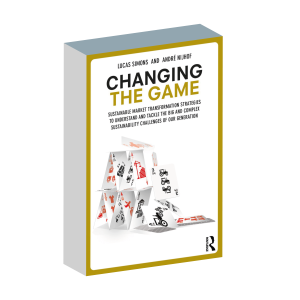
BOOK: CHANGING THE GAME - Lucas Simons and André Nijhof
Sustainable Market Transformation Strategies to Understand and Tackle the Big and Complex Sustainability Challenges of Our Generation.
In this book, Lucas Simons and André Nijhof argue that individuals do have the ability to change systems. System change really doesn't start with sending used clothes to Africa. You have to start like you start the board game Monopoly: understand the rules of the game. In this book, the authors explain how systems are built and how you can ensure that there is not always a single player who gets away with the loot.
Tipped by Wendeline Besier
"I think it is important to be aware, even as a company and organization, that you are part of a system and that there are all kinds of links before and after you. How good are you at connecting with those links? And are you able to connect on that sustainability and ambition? Maybe you don't even know that, for example, your supplier would also like to join you," Wendeline Besier says in the interview.
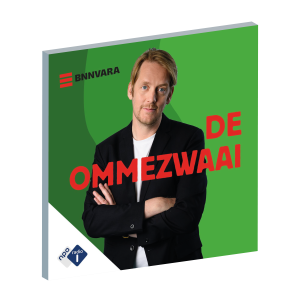
Podcast: de ommezwaai - sander Heijne
Journalist Sander Heijne was nine years old when the government first broadcast commercials about the risks of what was then called "the greenhouse effect. He now has a nine-year-old son, but when he takes stock of what we have done over the past thirty years to stop climate change, the honest answer is; far too little.
That's why he started "De Ommezwaai." A podcast in which he talks to directors, entrepreneurs and politicians who, often after long hesitation, have changed course. It's a quest to find out what is now giving executives the final push to decide to green their operations.
(Bron: NPO Radio 1)
"There are not that many people who are really good at business, but the people who are good at business have a social responsibility to look beyond their own interests. And that's what you would want. If you ask what skill they need, I say: sense of responsibility. A sense of duty, that you're not just doing it for yourself. I have for the Ommezwaai talked to a number of CEOs who have decided to change course. And the nice thing is, everyone who has finally made the move really enjoys talking about it. They actually feel: I'm doing something right, aren't I?” Sander Heijne says in the interview.

Book: gezien en gehoord 'seen and heard' - Sandra Ballij, Rob Beenders and Michael Graste
Never before has the labor shortage been so severe. There is also a huge group of people, with physical or mental challenges, who cannot connect with the labor market. That is a missed opportunity.
‘Gezien en Gehoord’ should touch you through a unique combination of inspiring stories and ironclad photographs. Besides inspiration, this book provides concrete tools and shows the opportunities to solve personnel shortages in an innovative way. To actually strengthen organizations by using the unique talents of this group of people. Seizing the opportunities that are still available. Because things can be done differently. Everything is now coming together to realize the biggest battle in inclusion.
"In 2030, the norm should be that we are able to look at competencies and skills of people, regardless of origin and age. That organizations also have the skills to really be able to look at what people can contribute and thus also be able to let go of the tubes we have devised of jobs and vacancies," Sandra Ballij says in the interview by Frontrunners and Frontier Scouts.
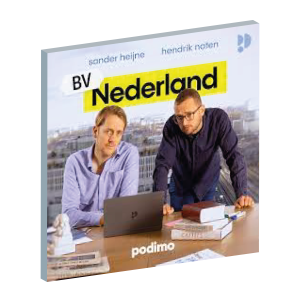
Podcast: BV NEDERLAND - Sander heijne and hendrik noten
The BV Nederland is running at full speed, but do we as a society have shares in it? Economic all(w)eters Sander Heijne and Hendrik Noten follow the political game of marbles and knackers from their think tank. Because we're richer than ever, but short on everything. How can this be?
"I hope to contribute to a tilted debate that leads us away from just focusing on money and the growth of the economy, to looking at: how do we keep a society together? How do we make sure everyone can keep up?” Sander Heijne says in the interview.
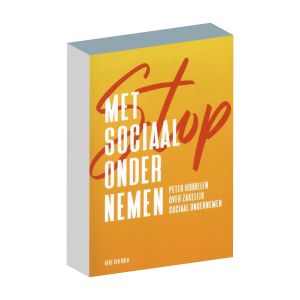
Book: Stop met Sociaal ondernemen - peter hobbelen and bert den boer
In this book, Peter Hobbelen, CEO Confed Group, talks about his quest and completely innovative vision of social entrepreneurship and inclusion in the labor market. His vulnerability, failures, setbacks and successes in social entrepreneurship are discussed. He discusses the challenge of social enterprises to develop a profitable revenue model when scaling up, and emphasizes the role of entrepreneurs in providing work for people with disabilities.
"A personal story with a business 'touch'. What should you pay attention to if you want to be a social entrepreneur, if you are a startup or if you want to grow with your social enterprise? The book includes examples of businesses I coach and consultancy roles. It also talks about pitfalls: which ones they experienced and also which ones I experienced myself. These in turn can help you in the journey you want to make," says Peter Hobbelen.
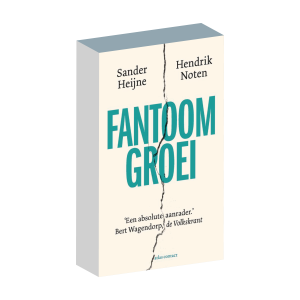
Book: fantoomgroei - sander heijne and hendrik noten
Companies have been making ever-increasing profits for years, but working people hardly see that reflected in their wallets. Healthcare, education and police, meanwhile, have eroded. How is that possible? Why do we accept it?
In ‘Fantoomgroei’ Sander Heijne and Hendrik Noten come to the surprising conclusion that the current penchant for growth is the result of a narrative that we ourselves have come to believe. The sharp analysis of the state of our society, in which a safe and healthy world has been made subordinate to the growth of the economy, is widely followed.
"If we look at why we once embraced that growth mantra, it was to very specifically solve a few problems that were very obvious about eighty years ago, but are now really not at all. For example, we are now producing more food than is good for the world's population. We see how obesity is on the rise. There are endless examples where you can see that this growth is actually standing in the way of a good society. So until we are able to disconnect that, we are going to have a very bleak future,” explains Sander Heijne.
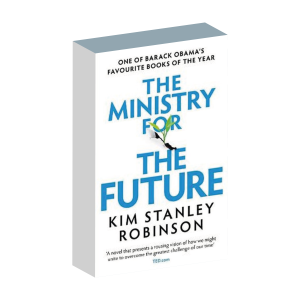
Book: the ministry for the future - kim stanley robinson
Tipped by Sander Heijne
Sander Heijne about the book:
"This science fiction novel shows what awaits us if we do not bring about change. It begins with a heat wave in India in which it gets so hot that 20 million people die. From the survivors, terror groups emerge. And we are already seeing around us that the climate movement is hardening. Just a few years ago we were in shock when a girl in Sweden decided to play hooky until there would be serious climate policy, now the climate movement is already to the point where paintings are daubed, airports are occupied. You see the protest goes from truancy to lawbreaking,it's a sliding scale. Reading that book, you get a pretty sharp sense that we have to change.”
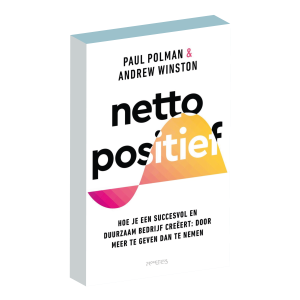
Book: Netto positief - paul polman andrew and s. winston
How to create a successful and sustainable business: by giving more than taking.
Paul Polman and Andrew Winston describe important experiences of Unilever and other global entrepreneurial pioneers: that it can make your company profitable by helping to solve world problems rather than causing them. Companies must become net positive: by giving more to the world than taking from it.
Tipped by Marthijn Junggeburth
"Paul Polman, the former CEO of Unilever, has always been a great inspiration to me. The idea of a net positive has been very inspiring to me. Around here, in the Peel region, a whole initiative has sprung up around it with companies embracing all this. So I can definitely recommend this book," says Marthijn Junggeburth in the interview of Koplopers en Grensverkenners. This interview will be online soon.


